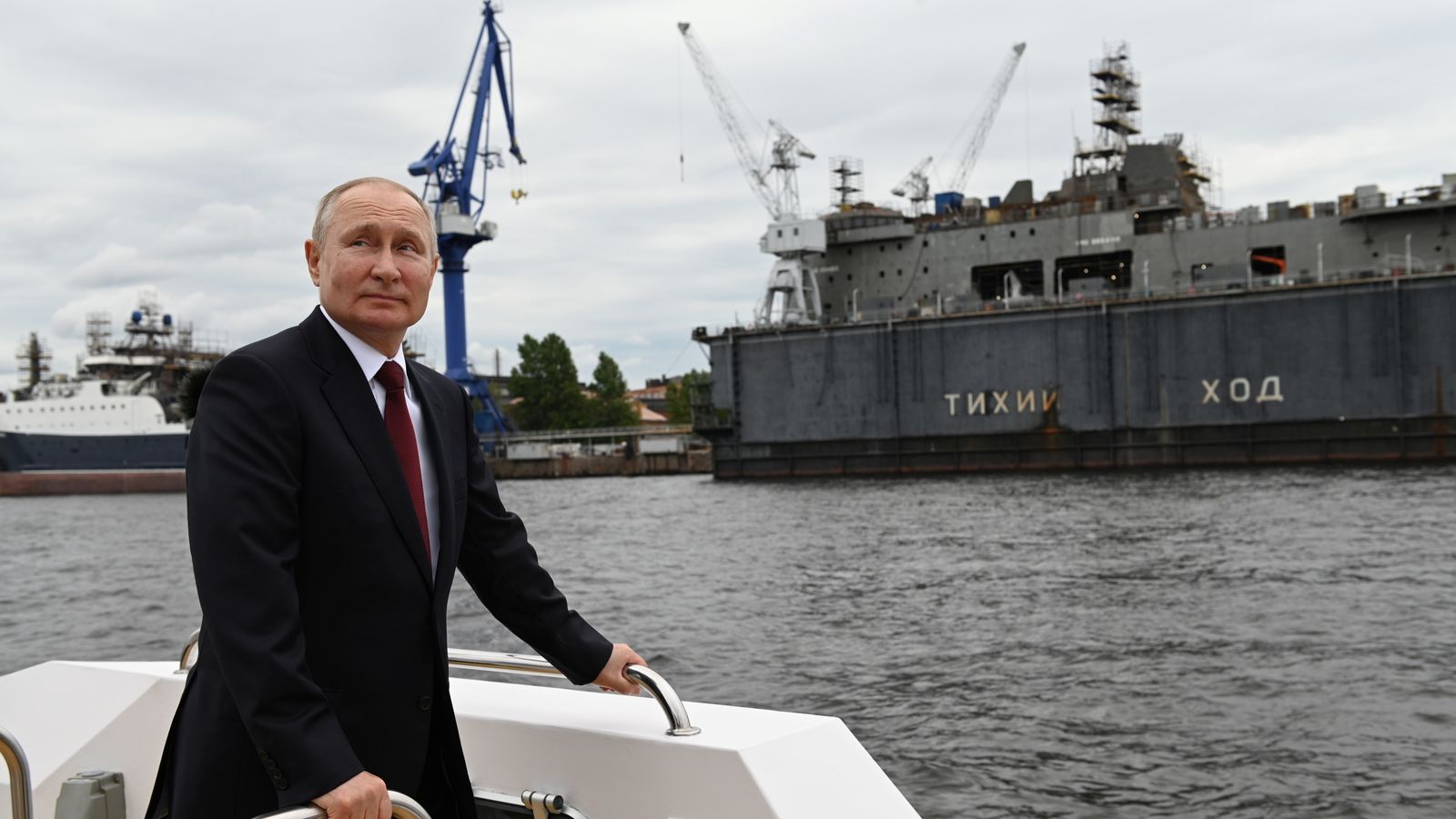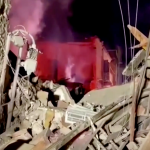President Vladimir Putin has said the Russian navy can detect any enemy and launch an “unpreventable strike” if needed.
The leader was speaking as he attended a parade to mark the 325th anniversary of the navy in St Petersburg, which also included ships from the navies of Iran, Pakistan and India.
“We are capable of detecting any underwater, above-water, airborne enemy and, if required, carry out an unpreventable strike against it,” Mr Putin said.
His words follow an incident in the Black Sea in June, when Russia said it had fired warning shots and dropped bombs in the path of a British warship to chase it out of Crimea waters.
Britain rejected Russia’s account of the incident, saying it believed any shots fired were a pre-announced Russian “gunnery exercise”, and that no bombs had been dropped.
Russia annexed Crimea from Ukraine in 2014 but Britain and most of the world recognise the Black Sea peninsula as part of Ukraine, not Russia.
Mr Putin said last month Russia could have sunk the British warship HMS Defender, which it accused of illegally entering its territorial waters, without starting World War Three and said the US played a role in the “provocation”.
Please use Chrome browser for a more accessible video player
Sunday also saw parades take place in the Russian naval bases of Severomorsk, Caspiisk, Baltiisk, Sevastopol, Vladivostok and at the Russian naval base in Tartus, Syria.
The Iranian frigate Sahand, which sailed down the Neva River in the St Petersburg parade, and the sea-based vessel Makran attracted attention from naval observers due to their unusually long voyages to Russia.
Mr Putin’s comments come as US Deputy Secretary of State Wendy Sherman prepares to travel to Geneva for nuclear arms control talks with Russia.
She will be joined by Under Secretary of State for Arms Control and International Security Bonnie Jenkins, whose nomination for that role was confirmed by the US Senate this week.
“This meeting follows up on a commitment made between President Biden and Russian President Putin to have a deliberate and robust dialogue between our two nations that will seek to lay the groundwork for future arms control and risk reduction measures,” the State Department said in a statement.






















